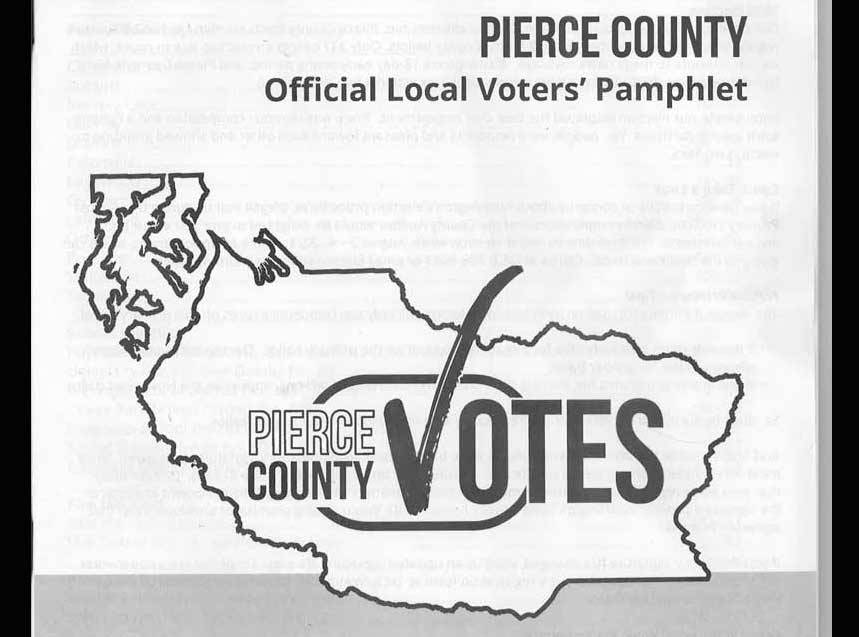By Morf Morford
Tacoma Daily Index
One of constants of life for most of us is the arrival of the seemingly ever-renewing voter pamphlet.
This humble little newsprint collection holds everything you need to know (almost) to make a fully informed decision on those issues and officials who put their arguments forward in the ultimate act of civic involvement.
In these few, bare-bones pages, every issue and candidate puts forth its most convincing face.
The arguments and faces might look familiar, as they should.
For better or worse, our candidates and issues don’t change that much from election to election.
But the nuances can be noticeable — and some times issues, or at least their defenses or justification may change or at minimum, shift over time.
Pierce County is a very strange place politically speaking.
A generation or so ago, when unions were strong, a working person, almost by definition, was a Democrat, as were most enlisted military.
Only the wealthiest, mostly clustered in big cities and the professional classes, were Republicans.
Fast forward to the 2020s, and the dynamics could not be more different.
Still largely “liberal” – though nowhere near as solidly as King County, Pierce County has had a majority of Republican held county-wide positions for many years.
From the County Executive to the County Council (until recently) and several other offices, Pierce County has been firmly in Republican control for many years.
In contrast, in terms of popular vote, on everything from state-wide issues to presidential candidates, Pierce County votes consistently “blue”.
With urban areas, especially Tacoma’s North End and University Place (and a few subsections of Lakewood) as bright “blue” on the electoral heat maps and most of rural Pierce County and the smaller towns voting reliably “red”.
We also have a large percentage of non-partisan votes – from law enforcement to port commissioners.
One dynamic I’ve noticed in 2021 is the shift away from the standard old white guy candidate for virtually every office.
Whatever the office, and whatever the platform, more and more candidates are younger, female and people of color.
Whether they prove themselves as winning – or suitable candidates – only time will tell.
Wherever you might live in Pierce County, the 2021 election holds something for you.
Multiple municipalities are having elections for mayor.
From Tacoma to Eatonville, the driving issues are largely the same – keeping what’s best and claiming a new vision.
Each candidate touts their experience and unique contribution.
From HOA president to school board to parenthood, to military service, these candidates promise to leverage their volunteer and personal experience and passion into local political effectiveness.
The perennial battle between passion and experience is perhaps best seen in the Tacoma Mayoral election.
Current Mayor Victoria Woodards has a history dense with committees and many years of city government both on the city council (1 and 3/4 terms) and currently running for her second term as mayor.
Running against her are two candidates – both running for office for the first time; Jamika Scott and Steve Haverly.
Realistically, these two novice candidates have little chance against such an established office holder.
Tacoma, as we all know, has what is called a “weak mayor” system.
We have this system precisely because a “strong mayor” system has not worked out well for us.
I can’t say that our current “weak mayor” system is working that well for us either.
A “weak mayor” system is a political framework where the city manager (usually unelected and non-partisan) holds the majority of local political authority while the (elected and usually partisan) mayor holds largely ceremonial powers.
This is the system that we in Tacoma have and that, for whatever reason, several candidates are competing for.
Most cities (for better or worse) have held to the “strong mayor” system. For one thing, it is cheaper – the average pay of Tacoma’s City Manager is a bit under $100,000 per year.
You can see the fine print on our city manager or contact the office here – https://www.cityoftacoma.org/government/city_departments/City_Managers_Office.
Smaller cities consolidate the official and ceremonial powers in one position – almost always elected, and rarely with term limits.
In a very real way, all politics is indeed local.
Tacoma is such a small town that most of us could easily have had the opportunity to meet the mayor (and most other city officials).
I have met three or four current or former mayors of Tacoma.
Tacoma is small enough that many of us could easily be neighbors, school mates or fellow workers with current – and especially future – political office holders.
For better or worse, in Tacoma and greater Pierce County, the life and challenges of the average voter and citizen are not far away; and are not distant abstractions – they are real, active and vital concerns.
From building codes to homeless camps to potholes, every issue impacts some of us.
From home values to personal safety to a sense of identity and belonging, local policies touch almost every aspect of our lives.
Voting is perhaps the ultimate act, right and obligation of citizenship.
One recent speaker described voting as an act of prayer – a statement of hope and determination, a belief that every voice matters and, that we, as individuals and as a community can, and sometimes must, do better.
The humble voter’s pamphlet is where, for most of us, it all begins.






